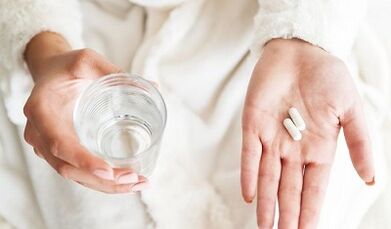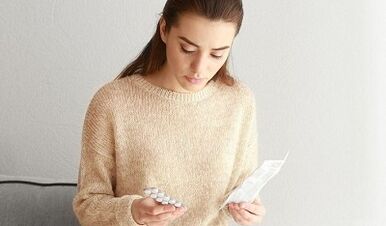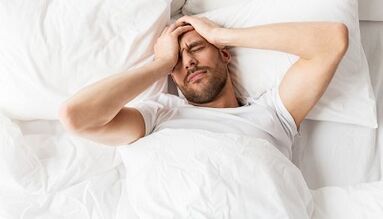When taking medication, people often have problems: how long after antibiotics you can drink alcohol.It's hard to say how long to get rid of the medications from the body - no doctor will definitely answer this question, as the actions of all antibiotics are different.In addition, there is a disease when the patient is prescribed not only antibiotics, but also a special diet.In this case, alcohol is prohibited.
About the medication

Antibiotics - a product of microorganisms (this is most often their synthetic mushrooms and derivatives).They are used to treat bacterial -caused infections.All of them are made in capsules and in tablets, as they are very easy.
However, for any antibiotics there are general acceptance rules:
- Any medication can be prescribed only by the doctor, depending on the severity of the disease and the characteristics of the patient's body.
- Antibiotics are not used as a treatment for viral diseases.
- As a result of any antibiotics considered in the first three days - if the drug helps, it is not recommended to interfere with treatment.If the symptoms continue to develop, then you should consult your doctor again.
- The course of treatment does not stop if the nausea or unpleasant taste in the mouth is shown.
- You cannot control the dose prescribed by your doctor - too small to do doses of antibiotics for the human body.
IMPORTANT!Keep in mind that self -medication is always dangerous to the body.
The amount of time needed to get rid of antibiotics from the body depends on many factors.Each drug has its own characteristics, but mostly removed from the body with urine through the kidneys or (if small dose) in the form of bile through the intestine.Very small doses can be displayed in other ways: through sweat, sebum, salivary glands or with phlegm.
If you need to know how to take a specific drug, you need to read the instructions.For any antibiotics, this information is shown in pharmacokinetic items.

Some drugs can be removed after 6-12 hours, but some are postponed in the body for 1-2 weeks.
In addition, it must be borne that muscle tissue quickly removes antibiotics, after it is fat and only bone.
After the standard and most importantly, successful antibiotics, alcohol cannot be taken for 3-5 days.
But there are exceptions in the form of chronic diseases when treatment is repeated.In this case, withstand alcohol worth 2-4 weeks.
Alcohol during treatment
If a person is prescribed an antibiotic course, then it is prohibited by drinking alcohol.Doctors notice that more effective treatment for people who do not drink alcohol either during the disease or thereafter.
- The most important reasons are the interaction of molecular alcohol and antibiotics.In this case, toxic substances can be removed.
- Against the alcohol background, antibiotics become less effective or useless at all.
- Hepatotoxic alcohol antibiotic (affecting the liver).If you use it at the same time, the burden on the liver increases.
When you can drink alcohol after taking antibiotics and how much, it is advisable to ask your doctor to avoid unpleasant consequences.
However, there is a small group of antibiotics allowed by alcohol.These include:
- antifungal;
- penicillin;
- Heliomitsin;
- Ansomicine;
- Glycopeptide.
Fund removal speed
One feels the toxic effects of antibiotics for a long time after treatment.
As mentioned, most of them are displayed in urine.Each drug is absorbed and surrounded in different body.
If you have such an opportunity, it is best not to take alcohol.
Fragile immunity after the disease is not always ready for the toxic effect of ethyl alcohol.
What affects him
The main factor affecting the rate of drug excretion is its chemical composition.But the road introducing antibiotics is also important.The parent's path (beyond the digestive tract) acts more efficiently and faster (withdrawn from 16-24 hours), but the specialist should be injected.At home, the entral route (via the gastrointestinal tract) - tablets and capsules can be taken at home.
The time needed to get rid of antibiotics from the body can depend on age - in the future, this happens slower.Also, excretion can prevent kidney, liver or genitourinary system work.Toxins are released faster with drinks of many liquid products or milk.
As a result of mutual acceptance

Often, people, without doubt, drink alcohol with antibiotics and claim that annotations do not indicate how much time you cannot drink alcohol and whether there is a prohibition of consuming it in general.But keep in mind that pharmaceutical companies produce antibiotics for treatment, and not to combine with alcohol, so they will not check the reaction.
No doctor can predict the right reaction in your body and how it affects the course of the disease.The use of alcohol during antibiotics can have serious consequences.Consider some of them:
- Violation of liver function.In this case, the liver cannot produce harmful products, but absorb all toxins into its cells.
- Severe allergic reactions (Quincke edema, anaphylactic shock).
- There may be body drunkenness (nausea, vomiting, headache, cramps, stomach aches).
- Heart problems may occur, stroke or myocardial infarction will develop.
- Increase or reduce blood pressure (blood pressure).
Keep in mind that with the combination of drugs with alcohol, ethanol is not split.Therefore, as a result: most of the harmful substances of alcoholic beverages will accumulate in one's organs and tissues.
The most dangerous "cocktail"
Many antibiotics are not compatible with any alcohol.For example:
- Fruitorchinolons, mixed with alcohol, act badly on the nervous system and can be brought to a coma.
- Tetracyclics is delayed for a long time in the body, can destroy some liver cells and thus consuming alcohol may be three days.
- Aminoglycosides can be the cause of complications in the ear and kidneys (alcohol may be after 2 weeks).
- The nervous system and liver are damaged by lincosamides (alcohol may be after 4 days).
- Macrolida can cause liver cirrhosis (alcohol may be after 4 days).
All anti -TB drugs cause hepatitis, in this case -where alcohol is prohibited.
First aid
The first action is an ambulance call.Determine how much time has passed since drunkenness, and be sure to save the residues that cause poisoning - this will help the doctor.
If the victim is aware, she needs to drink a large amount of water, and then cause vomiting with the back wall of the larynx.After the stomach is washed, you need to give the victim any sorbent (for example, carbon is activated).
Put the patient in a simple horizontal position, note the breathing and pulse.Wait for the ambulance.
Yield
Antibiotics are a very serious drug.Someone taking antibiotics must follow the instructions attached to these drugs.Not all antibiotics can be combined with alcohol, at best the drug will not help, and the worst can cause death.























